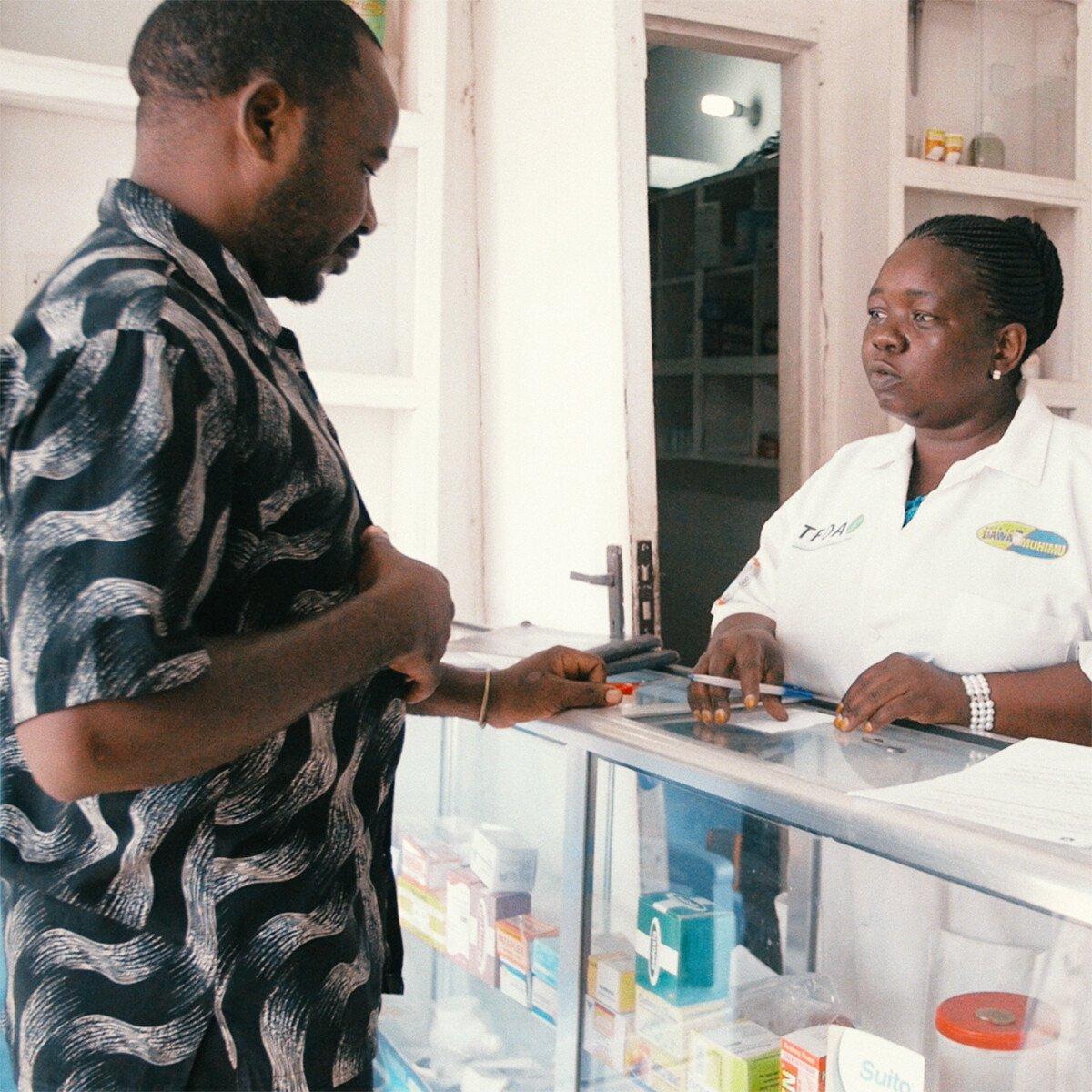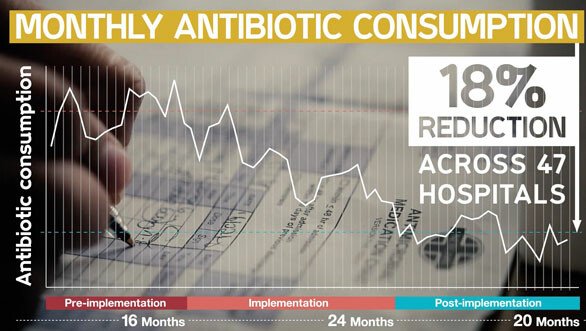
Six pioneering ways to stop superbugs
From India to Latin America, efforts are being made to reduce the rise and spread of antibiotic-resistant superbugs.

Antibiotic-resistant bacteria currently kill 700,000 people a year, and the number could rise if the problem is not addressed. Innovation is vital to address the overuse and inappropriate use of antibiotics in human and animal health, which drives the rise and spread of resistance.
Here are six great examples of initiatives in this area. Some of the most inspiring are happening in lower and middle-income countries, where the problem is greatest, and show the importance of good ideas, collaboration, and the will to intervene and implement.
Nigeria: engaging communities to use antibiotics appropriately
Pressing play on the video above will set a third-party cookie. Please read our cookie policy for more information.
In Nigeria, labourers and farmers in local rural communities have been mistakenly using antibiotics as painkillers. The inappropriate or overuse of antibiotics in this way can speed up the rise of drug resistance.
To tackle this, researchers at the Department of Microbiology, Bayero University, Kano, started an outreach programme to inform students and communities in the area about antimicrobial resistance and the need to use antibiotics appropriately.
Students learn about antimicrobial resistance at the Bayero University, and are trained to engage their friends, family and community members about the topic. Researchers also work directly with community leaders to educate communities.
The initiative has started to show impact, with community members and students highlighting that it has changed their understanding of antibiotics and how to use them.
Ghana: using dance to educate communities
Pressing play on the video above will set a third-party cookie. Please read our cookie policy for more information.
Buying antibiotics without a prescription is a common practice in Ghana. To inform people about the risks associated with this, the government commissioned the national dance company to choreograph a traditional dance about good antibiotic stewardship.
The dance was showcased at an international event in Accra where it was praised for using an engaging format to communicate about a health issue that can be hard to grasp.
Drug-resistant infections pose a grave threat to global health, so employing communication methods that are locally relevant will be important to ensure widespread understanding of the issue.
India: new ways to fund antibiotic development
Pressing play on the video above will set a third-party cookie. Please read our cookie policy for more information.
The pace at which new antibiotics are developed and approved globally has dropped dramatically over the past 30 years. Even today, with the growing sense of a looming crisis, there aren't many new treatments being developed.
But in India, new ways to provide public funding, coupled with innovative start-ups, may help to change that.
The Indian government has invested in technology campuses called incubators, which provide companies with state-of-the-art equipment and facilities. These incubators help to speed up the development of new antibiotics, increasing the chances of treatments becoming available for patients worldwide.
One of these companies is Bugworks, a small start-up in Bangalore that's at the cutting edge of antibiotic development. Early support from the Indian government helped Bugworks secure funding from the international antibiotic R&D partnership, CARB-X, and one of the antibiotics that it’s developing is currently in Phase 2 clinical trials.
Tanzania: changing how antibiotics are dispensed
Pressing play on the video above will set a third-party cookie. Please read our cookie policy for more information.
People in rural Tanzania often have to travel long distances to access the country’s healthcare system. So in the past, they would usually buy antibiotics from unregulated local shops. They had scant awareness of antimicrobial resistance in bacteria, and little was being done to prevent superbugs spreading.
That was until the government of Tanzania, its Pharmacy Council and international non-governmental organisation Management Sciences for Health changed how antibiotics are dispensed. They set up a national network of accredited drug dispensing outlets, known as ADDOs.
Trained drug dispensers now work in more than 12,000 of these shops across Tanzania to sell appropriate antibiotics, educate people and reduce the incidence of drug-resistant infections across the country. This pioneering initiative is being extended to other countries in Africa and beyond.

South Africa: empowering hospital pharmacists
Pressing play on the video above will set a third-party cookie. Please read our cookie policy for more information.
While plenty of guidelines exist to prevent the spread of antibiotic-resistant superbugs in hospitals, they are often not implemented.
In South Africa, a pilot project to improve this was started in the emergency wards of a single private hospital in Johannesburg, run by health provider Netcare.
The project empowered hospital pharmacists. Trained in antimicrobial stewardship, they now work with doctors, nurses and patients to advise on which are the most appropriate antibiotics to take, and when.
Their work, which has already lowered antimicrobial resistance rates, has now been expanded across 47 hospitals in the Netcare group – and will soon be extended into South Africa’s public hospitals.

Colombia: detecting superbugs in poultry
Pressing play on the video above will set a third-party cookie. Please read our cookie policy for more information.
In Colombia, a team of research scientists are working to reduce the levels of antibiotic-resistant bacteria in the country's poultry and livestock.
Chickens, pigs and other farm animals are often fed antibiotics, driving the evolution of resistant superbugs. Colombia has had no way of knowing the extent of the problem.
To find out, scientists partnered with farmers and retailers to create the country’s first national surveillance programme for antibiotic-resistant bacteria in chickens.
By detecting and auditing the appearance of superbugs, the programme is helping to change both the perceptions and practice of antibiotic use in Colombia.
The programme is currently being expanded across the country and into other livestock.
This article was originally published in May 2018.

